October 30, 2024 | by Silvana Jakupovic, ND
As the winter season unfolds, bringing along its characteristic chill and shorter days, our focus often shifts towards maintaining health and bolstering our immune systems. This blog examines the science behind the immunomodulatory health benefits of functional mushrooms, a topic garnering considerable attention in immunotherapy.
Immunomodulation refers to the ability of these fungi to alter the immune response, either by enhancing or suppressing it, to maintain a state of homeostasis within the body. These natural immunity boosters contain diverse bioactive compounds, including polysaccharides like beta-glucans, triterpenoids, and glycoproteins, which have been shown to influence various aspects of the innate and adaptive immune systems.
Winter Health Tips: Winter Wellness with Mushrooms
Each mushroom we discuss brings its unique blend of nutrients and compounds that contribute to immune health and offer natural remedies for winter health. From the Turkey Tail, known for its high polysaccharide content, to the revered Reishi, often called the "Mushroom of Immortality," these natural wonders have been used for centuries in traditional medicine for their healing properties and to offer holistic immune support.

Turkey Tail Mushroom Benefits
Turkey Tail mushrooms stand out for their significant immune-boosting properties. These fungi are exceptionally rich in polysaccharides, which are pivotal for immune health. Polysaccharide Krestin (PSK), an essential compound in Turkey Tail, has garnered extensive research interest due to its potent biological activity [1]. Japan has even approved PSK as a supportive treatment in cancer care, recognizing its ability to fortify the immune system and thereby aid the quality of life for cancer patients.
Moreover, the comprehensive benefits of Turkey Tail are not limited to PSK alone. Studies have shown that using the whole mushroom can significantly bolster both innate and adaptive immune responses [2]. Turkey Tail also contains a polysaccharide-protein complex known as PSP, abundant in beta-glucans. These beta-glucans engage with specific receptors on macrophages, cells tasked with identifying and eliminating pathogens [3]. This interaction triggers a cascade of immune responses, leading to the eradication of harmful microorganisms.
Turkey Tail's influence on antibody production is particularly noteworthy. It enhances the generation of IgM and IgG antibodies, crucial components of our immune defence [4]. IgG antibodies, which constitute about 75% of serum antibodies in humans, play a critical role in long-term immunity and can reduce the likelihood of reinfection.
In addition to these immune-modulating effects, Turkey Tail is a rich source of antioxidants like phenols and flavonoids [5]. These antioxidants are essential for protecting cells from damage and controlling inflammation, both critical factors in maintaining a robust immune system. The presence of these antioxidants in Turkey Tail further underscores its role in enhancing immune function and promoting overall health.

Reishi Mushroom for Winter Wellness
Reishi mushrooms are distinguished by their rich content of beta-glucans, polysaccharides, and triterpenes, all known for their immune-enhancing capabilities. These compounds are instrumental in activating immune cells such as macrophages and natural killer cells, and they play a crucial role in stimulating cytokine production, which is essential for regulating immune responses [6,7]. The immunomodulatory properties of Reishi mushrooms have been well-documented, showing effectiveness in various groups, including cancer patients and healthy individuals.
Toll-like receptors (TLRs) are central to the immune system, which initiate the innate immune response at the early stages of infection [8]. Beta-glucans' binding to TLRs activates this response, leading to the production of vital cytokines. This process is crucial for controlling the growth and activity of immune cells, highlighting Reishi's potential in combating bacteria, viruses, and cancer cells.
Research points to the potential role of Reishi mushrooms in COVID-19 treatment [9]. Studies indicate that Reishi's beta-glucans can increase lymphocytes and enhance signals from pattern recognition receptors (PRRs), which are essential in initiating innate immunity [9]. This suggests that Reishi mushrooms bolster protective inflammatory responses against various infections, including COVID-19.
Additionally, Reishi mushrooms demonstrate significant antiviral properties. Neuraminidase (NA) inhibitors are vital in treating influenza, but increasing drug resistance calls for new solutions [10]. Reishi's triterpenoid constituents have shown NA inhibitory activity against influenza strains H5N1 and H1N1 [10]. These findings highlight the potential of Reishi's triterpenoid structure in developing novel NA inhibitors, offering a promising avenue to address the growing resistance to existing antiviral drugs.

Chaga and Winter Health: Immune System Support
Chaga mushrooms have shown promise in combating HSV-1 (herpes simplex virus) [11]. Its extract inhibits the virus's ability to fuse with cellular membranes, thereby preventing viral entry. Further studies reveal that Chaga can protect cells from HSV infection and potentially remove viral DNA from already infected cells, suggesting a capability to prevent recurrent herpes outbreaks [12].
Moreover, Chaga has been observed to modulate immune responses related to allergies. In allergic reactions, there's an imbalance favouring TH2 responses, leading to the activation of cells like B cells and mast cells, which produce IgE antibodies [13]. Chaga consumption has been associated with a significant reduction in total IgE levels and an increase in TH1 responses, indicating its potential to inhibit allergy development [14]. It also lowers IL-4 expression, a key factor in allergic responses [14].

The Benefits of Shiitake Mushroom
A study explored the health benefits of Shiitake mushroom beta-glucan extracts, particularly in alleviating COVID-19-related lung inflammation and cytokine storms [15]. Coronavirus pneumonia often leads to severe lung damage and acute respiratory distress syndrome (ARDS) due to excessive inflammation and cytokine release, notably interleukin (IL)-1β and IL-6 [15].
The research focused on Shiitake's immunomodulatory and cytoprotective effects using lung epithelial cells and macrophages. Findings indicated that the extracts significantly reduced NF-κB activation, a key inflammation marker, in lung cells and lessened oxidative stress and pro-inflammatory cytokine responses, suggesting their potential in COVID-19 therapies targeting cytokine storms and lung injury [15].
Human clinical trials involving 52 healthy adults assessed the immune-boosting effects of Shiitake mushrooms over four weeks [16]. The study observed increased proliferation and activation of γδ-T and NK-T cells, vital for immune response, alongside enhanced secretory immunoglobulin A (sIgA) levels in saliva, indicating improved gut immunity [16]. A decrease in C-reactive protein (CRP) levels was also noted, pointing to immune enhancements in a less inflammatory environment.

Maitake Mushroom Supporting Immune Function
Recent research into Maitake mushrooms has revealed a wealth of bioactive compounds that can boost and support immune function.
Studies have shown that Maitake extract can counteract the immune cell depletion caused by dexamethasone, a corticosteroid used in treating inflammatory conditions [17]. In experiments with mice, Maitake extract restored over 40% of T cells and natural killer cells, essential for innate and adaptive immunity, depleted by dexamethasone treatment [17].
Maitake mushrooms are also notable for their content of beta-glucans and polysaccharides, which have various health benefits, including anti-bacterial and anti-viral properties [18]. Beta-glucans' structure from mushrooms is unique, allowing them to interact effectively with immune cell receptors. This uniqueness gives certain functional mushrooms, like Maitake, enhanced bioactivity and specific immunomodulatory capabilities that other beta-glucan sources may lack.
Mushroom Supplements for Immunity: Herbal Immune Support
Exploring functional mushrooms like Turkey Tail and Maitake reveals a fascinating and potent avenue for enhancing immune health, particularly in the challenging winter months. With their rich bioactive compounds, these mushrooms offer a natural and holistic approach to bolstering the immune system.
As research continues to unfold the health benefits of these fungi, it becomes increasingly clear that incorporating functional mushrooms into our diets could be a key strategy in maintaining wellness and fortifying our body's defences against various health challenges.


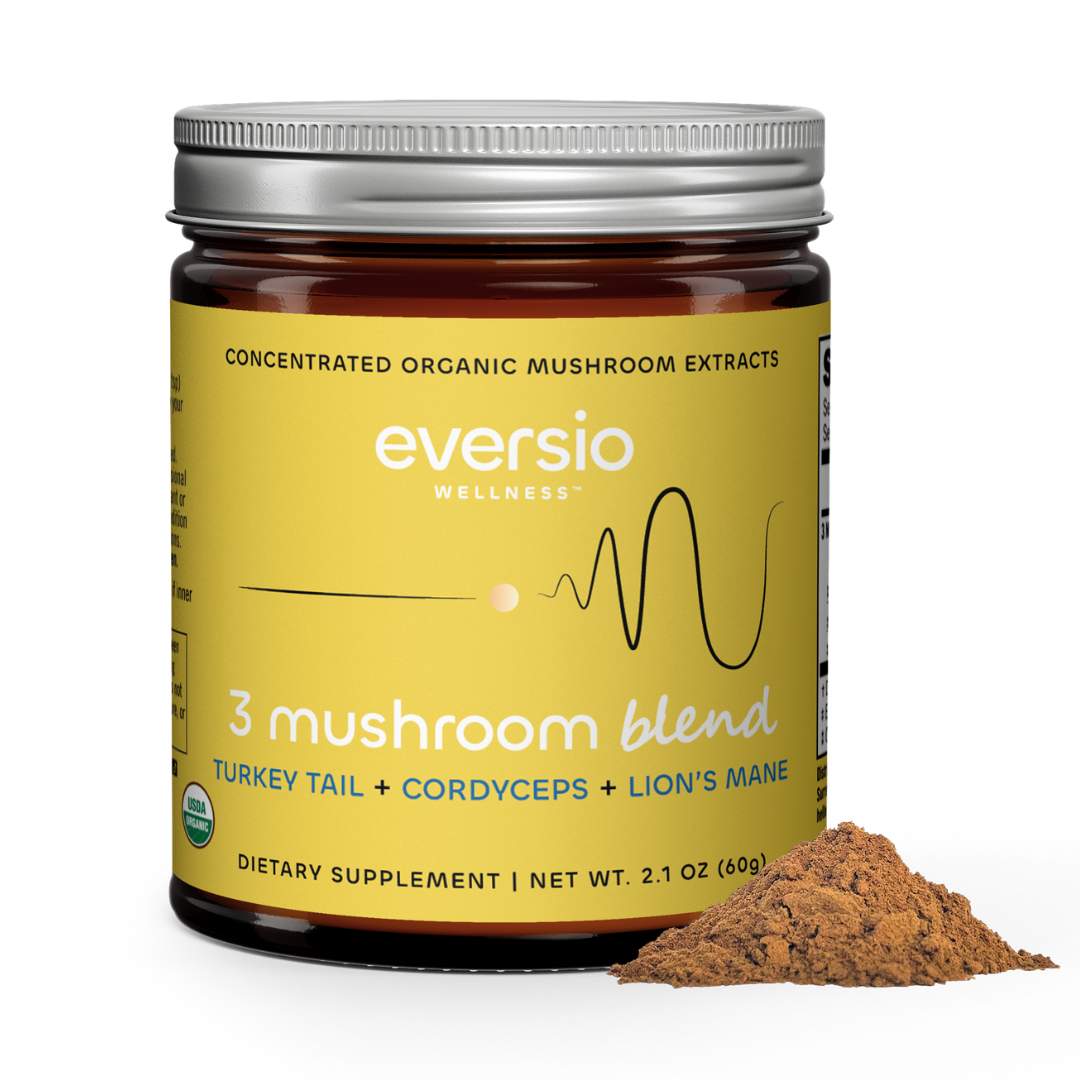
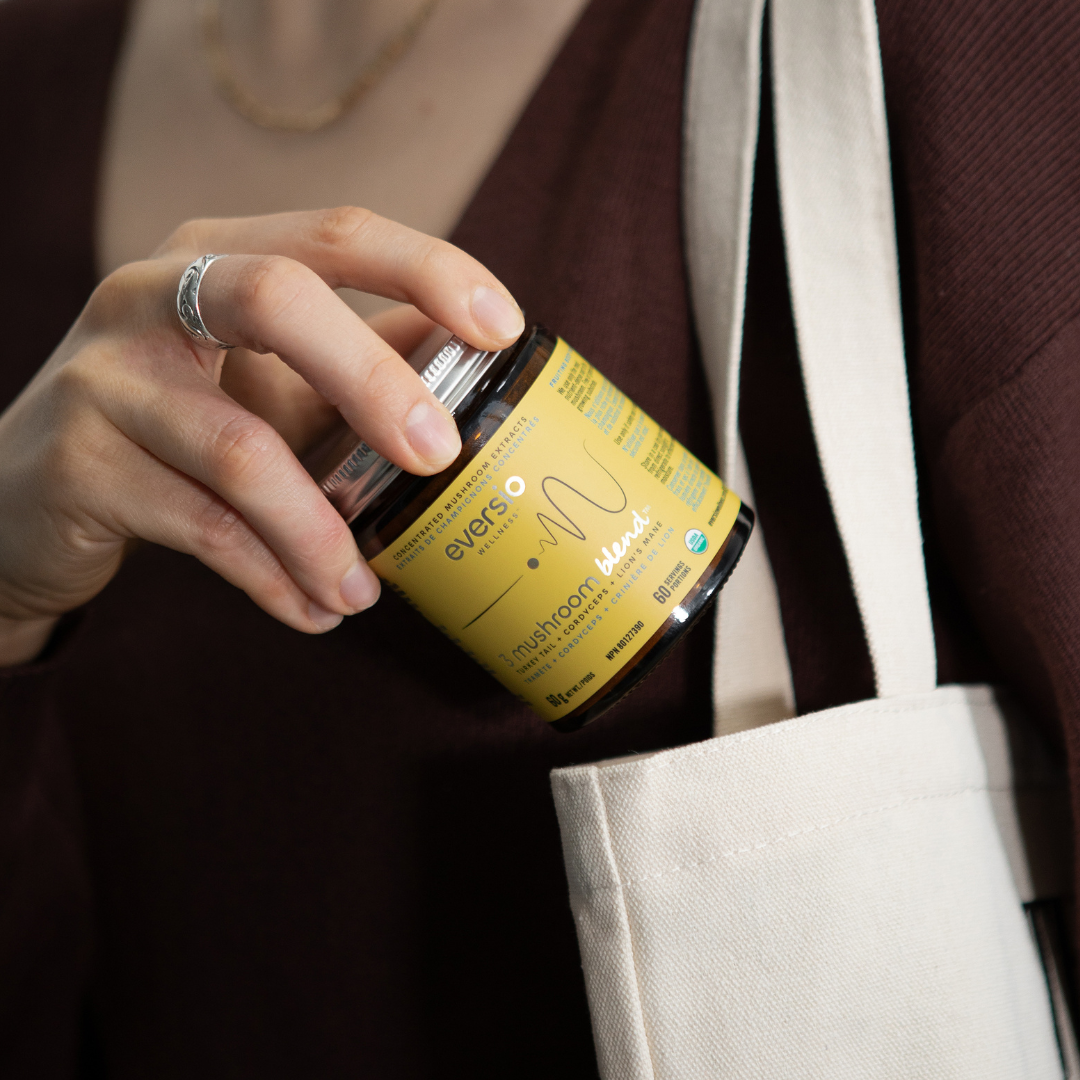

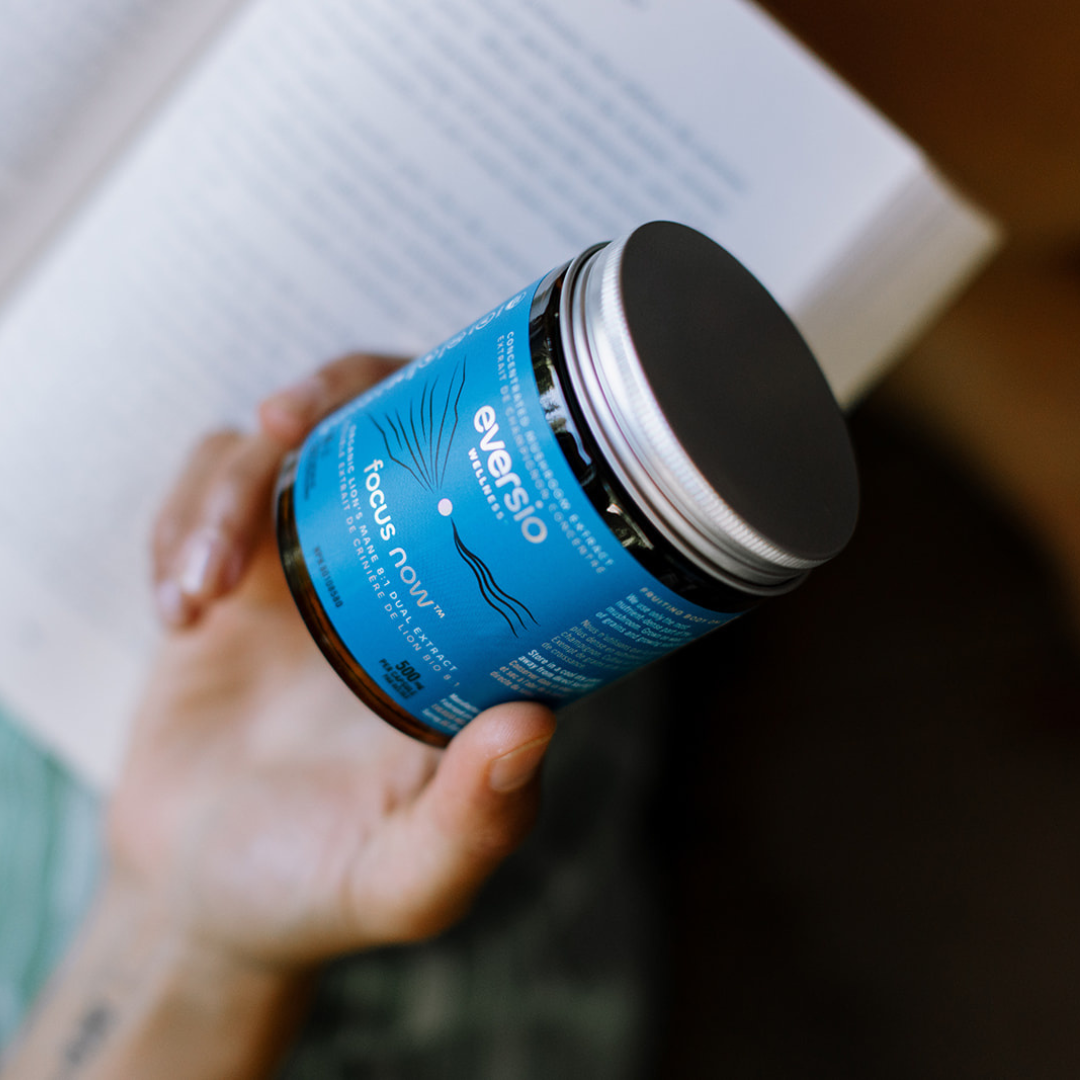
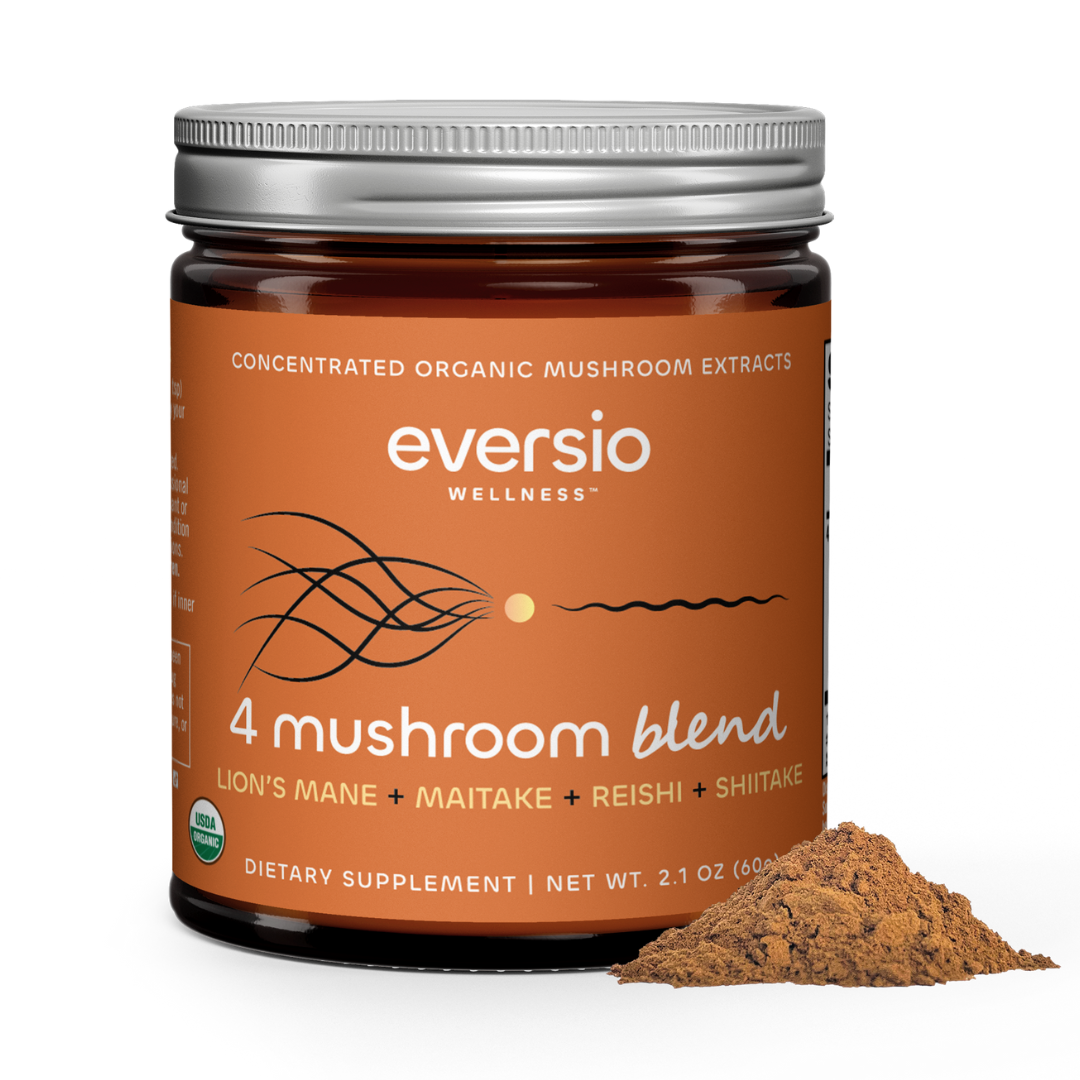
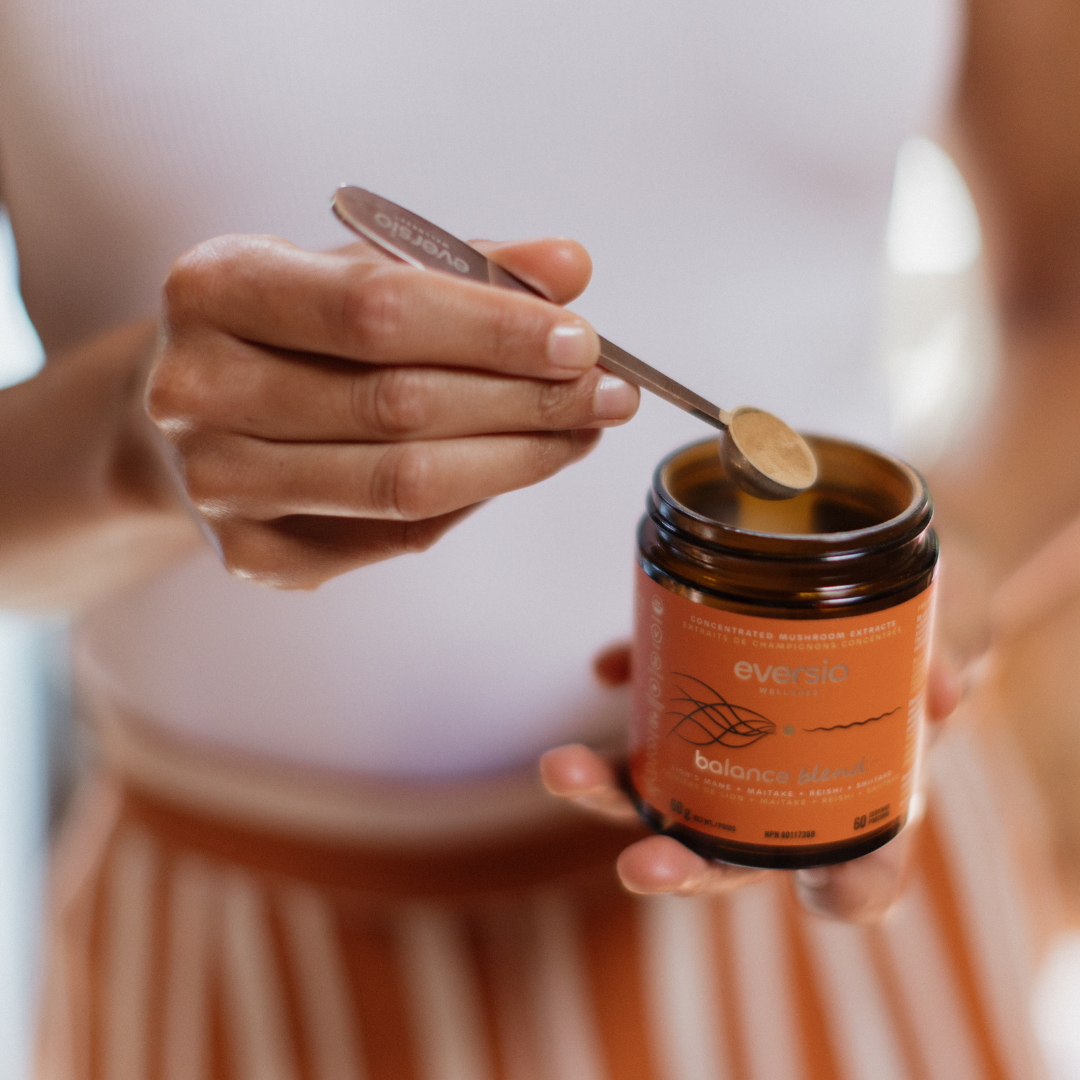
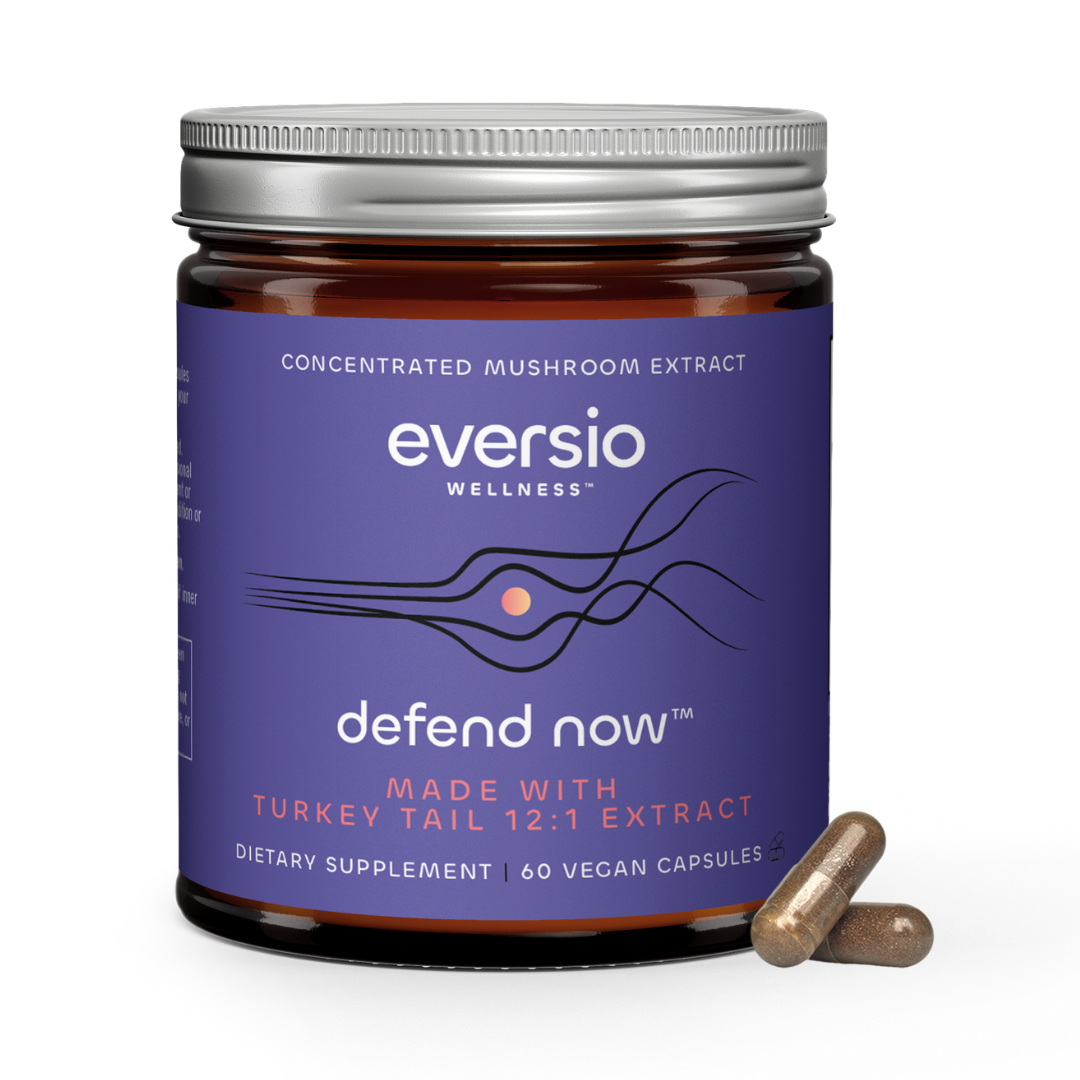
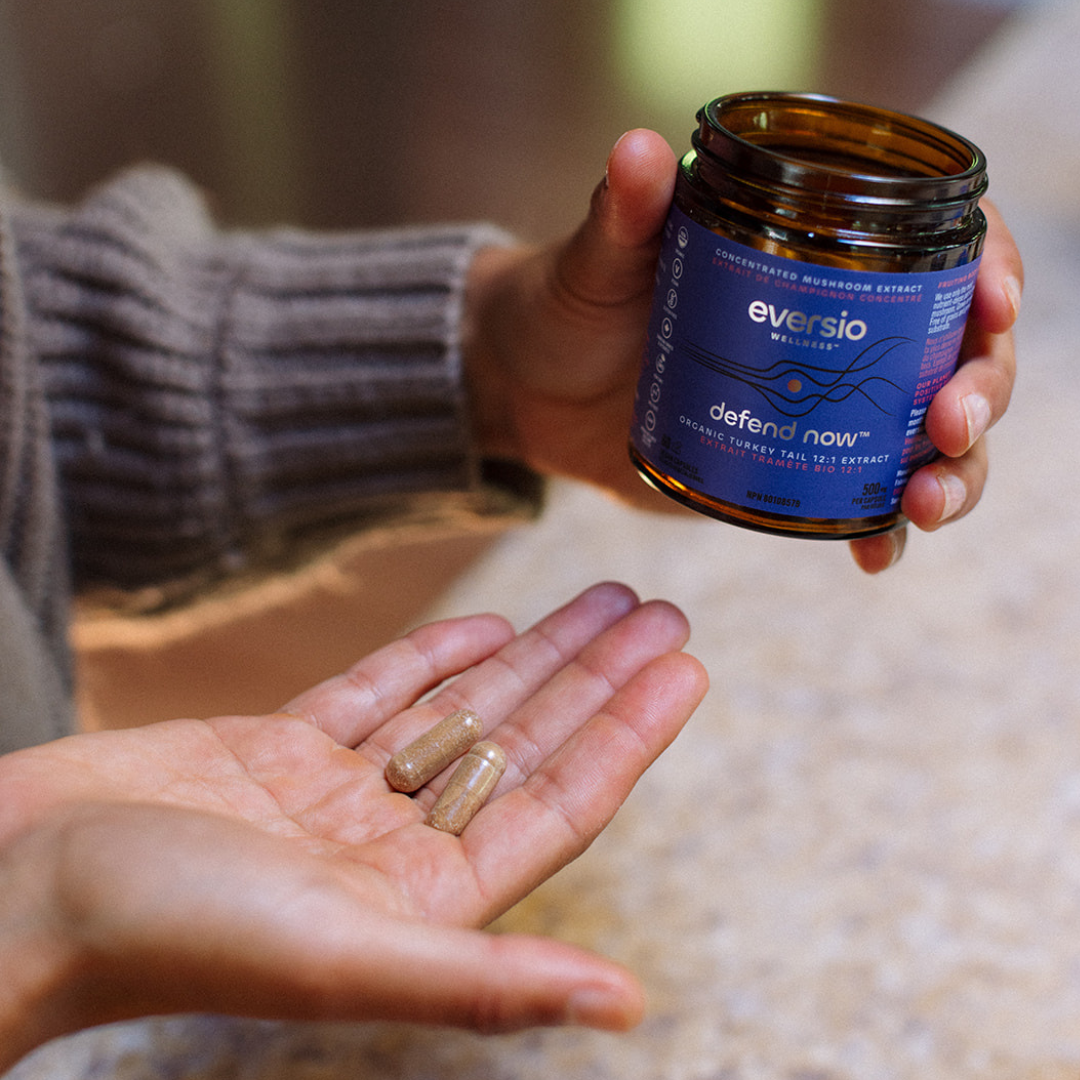
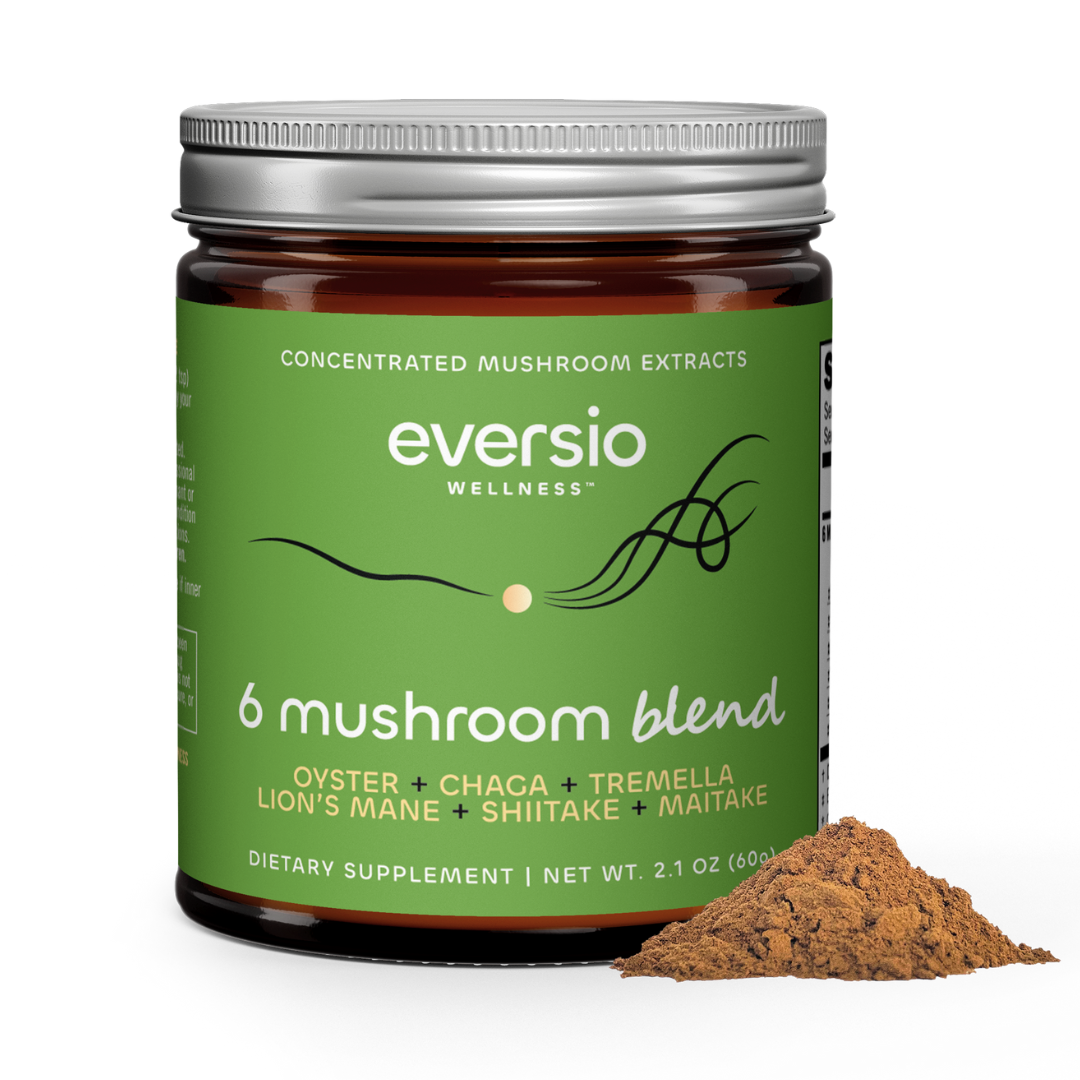
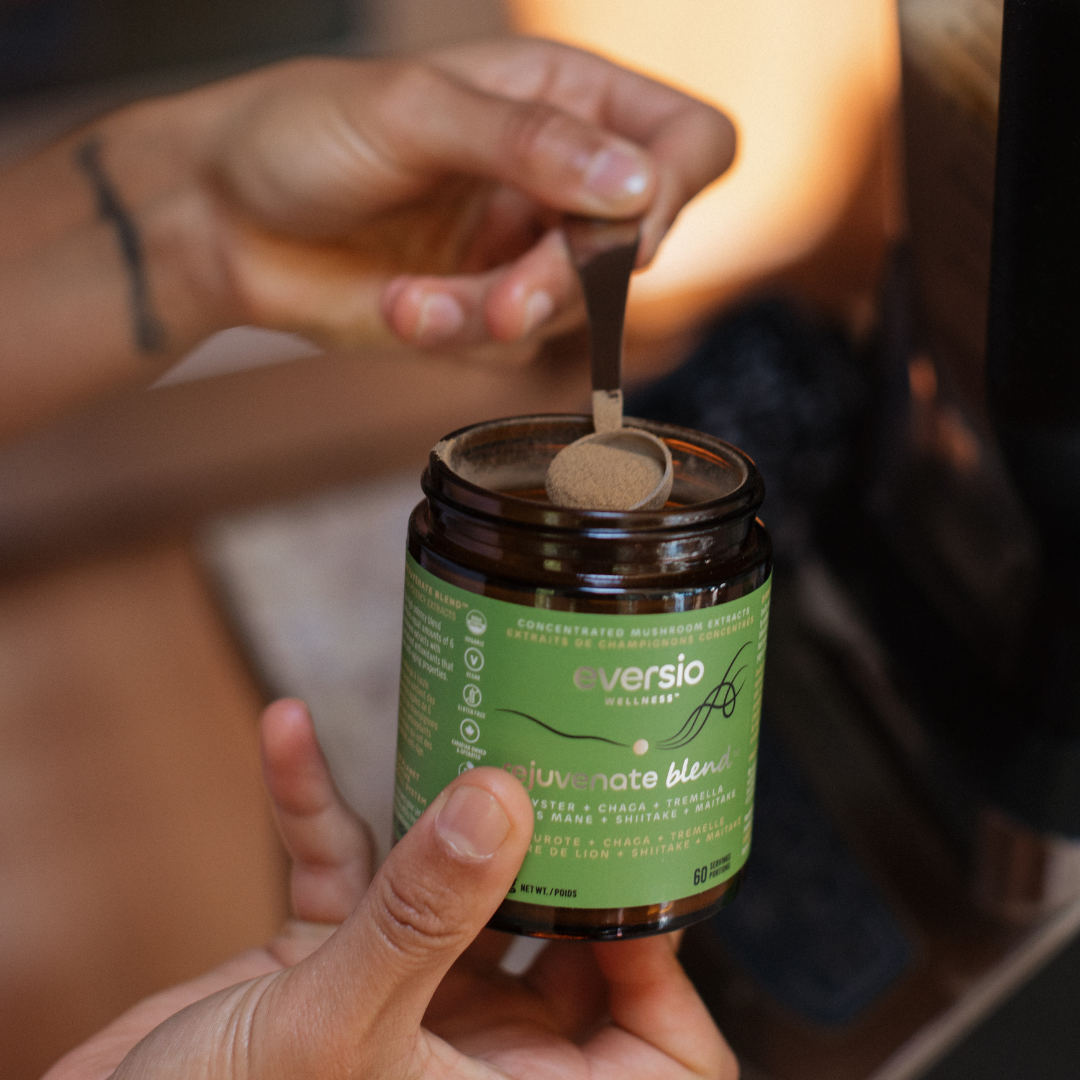








Leave a comment
All comments are moderated before being published.
This site is protected by hCaptcha and the hCaptcha Privacy Policy and Terms of Service apply.